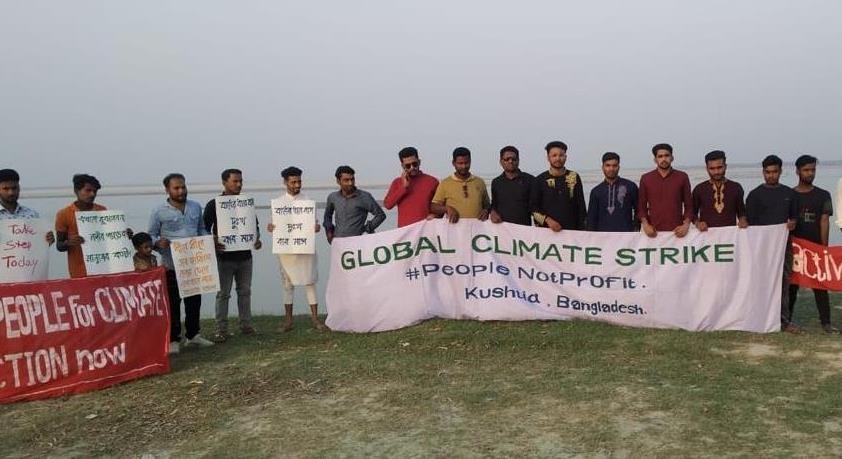Greece Train Crash: Thousands March In Athens As Anger Intensifies Over Deaths
At least 57 people, including several university students, died when a passenger train slammed into a freight carrier just before midnight Tuesday. The government has blamed human error and a railway official faces manslaughter charges.

Thousands gathered to protest against deaths in train crash in Athens. AP
04 MAR 2023
Protests have intensified in Greece days after the country's deadliest rail disaster, as thousands of students took to the streets in several cities and some protesters clashed with police in Athens
At least 57 people, including several university students, died when a passenger train slammed into a freight carrier just before midnight Tuesday. The government has blamed human error and a railway official faces manslaughter charges.
Friday night's violence was not extensive and the protests were otherwise peaceful. Clashes also occurred in Greece's second largest city, Thessaloniki.
Related Stories
Greece: Dozens Killed In Fiery Train Crash, Several Cars Crushed

Greece Train Crash: Death Toll Mounts To 32, At Least 85 Injured

Greece Strike: Artists, Students Stage Protest Against Changes In Qualification System Of Civil Service Jobs

In Athens, riot police outside parliament fired tear gas and flash grenades to disperse a small number of protesters who hurled petrol bombs at them, set fire to garbage bins, and challenged police cordons. No arrests or injuries were reported.
The protests called by left-wing and student groups were fuelled by anger at the perceived lack of safety measures in Greece's rail network. The largest on Friday was in the central Greek city of Larissa, not far from the crash site, where several thousand people marched peacefully. Similar protests were held on Wednesday and Thursday.
First funeral in Northern Greece
The accident at Tempe, 380 kilometres (235 miles) north of Athens, shocked the nation and highlighted safety shortcomings in the small but dated rail network.
As recovery teams spent a third day scouring the wreckage on Friday and families began receiving the remains of their loved ones, the funeral for the first of the victims was held in northern Greece.
Athina Katsara, a 34-year-old mother of an infant boy, was buried in her home town of Katerini. Her injured husband was in hospital and unable to attend.
Harrowing identification process
The force of the head-on collision and resulting fire complicated the task of determining the death toll. Officials worked round the clock to match parts of dismembered and burned bodies with tissue samples to establish the number.
The bodies were returned to families in closed caskets following identification through next-of-kin DNA samples -- a process followed for all the remains.
Relatives of passengers still listed as unaccounted-for waited outside a Larissa hospital for test results. Among them was Mirella Ruci, whose 22-year-old son, Denis, remained missing.
"My son is not on any official list so far and I have no information. I am pleading with anyone who may have seen him, in rail car 5, seat 22, to contact me if they may have seen him," Ruci, who struggled to stop her voice from cracking, told reporters.
Flags at half staff
Flags at the ancient Acropolis, parliament and other public buildings around Greece remained at half-staff on the third day of national mourning. National rail services were halted by a strike for a second day, with more strikes planned over the weekend.
Police early on Friday searched a rail coordination office in Larissa, removing evidence as part of an ongoing investigation. The facility's 59-year-old station manager was arrested and charged with multiple counts of negligent manslaughter.
Stelios Sourlas, a lawyer representing a 23-year-old victim of the collision, said responsibility for the deaths went beyond the station manager.
"The station manager may have the principle responsibility ... but the responsibility is also broader: There are the rail operators and public officials whose job it was to ensure that safety measures and procedures were properly in place," Sourlas said.
Rail unions say the network was poorly maintained despite upgrades to provide faster trains in recent years.
Election plans delayed?
Greece's centre-right government had been widely expected on Friday to call national elections for early April, but the announcement and likely date was likely to be delayed.
The passenger train involved in the crash was travelling along Greece's busiest route, from Athens to Thessaloniki. The freight train was heading in the opposite direction, on the same track.
Two of the victims were identified on Friday as Cypriot students Anastasia Adamidou and Kyprianos Papaioannou. Cyprus President Nikos Christodoulides said the state would cover the cost of their repatriation and funerals.
Neighbouring Albania's Prime Minister Edi Rama announced that flags on public buildings will be lowered to half-staff on Sunday, as a mark of respect for the victims in Greece.
Strike, Protests In Greece As Anger Grows Over Train CrashDebris is seen on the site of a crash, where two trains collided, near the city of Larissa, Greece, March 3, 2023. REUTERS
Greek railway workers extended their strike to a second day on Friday, and more protest rallies were planned, amid anger over a devastating train crash that killed at least 57, among them many university students.
Carriages were thrown off the tracks, crushed and engulfed in flames when a high-speed passenger train with more than 350 people on board collided head-on with a freight train late on Tuesday.
"The federation has been sounding alarm bells for so many years, but it has never been taken seriously," the main railworkers union said, demanding a meeting with the new transport minister, appointed after the crash with a mandate to ensure such a tragedy can never happen again.
The union said it wanted a clear timetable for the implementation of safety protocols. Questions around the crash - which happened as the two trains were on the same track - involve faulty signalling and maintenance issues.
Work resumed at the crash site, where rescue staff used cranes to lift some of the carriages that were thrown off the tracks - which could be wrapped up on Friday.
"The operation is under way, it was planned to end today, we hope it will end today but there's always the unknown factor," a fire brigade official said.
It was unclear if more were still missing, or how many.
Amid shock and sorrow in a country where three days of national mourning have been declared, families and friends said they wanted answers over how such a crash could have happened.
On Thursday, outside the hospital in Larissa, where many of the victims were brought, a woman called Katerina, whose brother was missing, screamed: "Murderers! Murderers! I will leave tomorrow with a coffin!"
Katerina, whose anger was directed at the government and the rail company, had, like other relatives looking for loved ones, given a DNA sample to try and identify her brother.
A woman whose husband and five-year-old son were on the train told Greek TV: "All those people who are there, they're useless, useless. Some MPs are coming out and offering condolences, so what? Will it bring our children back?"
Asked if she gave DNA for identification, she said, on footage broadcast by Mega TV: "to identify what, ashes?"
After evening protests over the past two days, two more protest rallies are planned in Athens on Friday, around noon and in the evening.
SEE


























